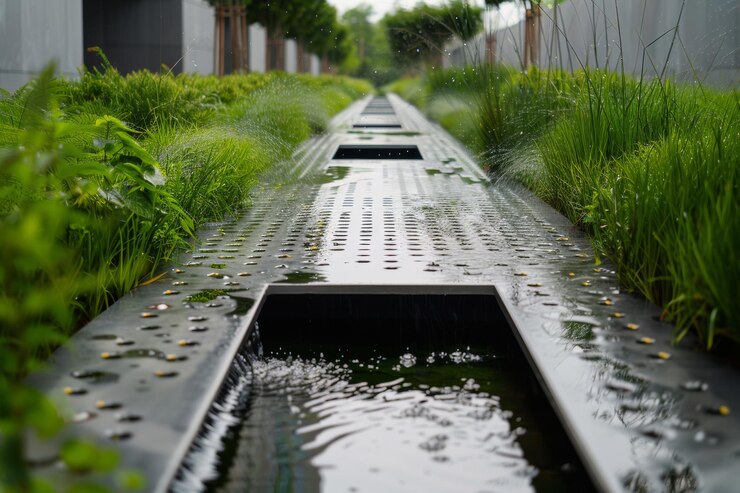In urban areas like Seattle, managing stormwater runoff is a significant challenge. During heavy rains, water runs off impervious surfaces such as roofs, sidewalks, and driveways, carrying pollutants into the city’s storm drains and eventually into local rivers, lakes, and Puget Sound. This can lead to flooding, water pollution, and habitat destruction. One effective way to address these issues is by installing rain gardens. Here’s how rain gardens play a crucial role in stormwater management:
1. Capturing and Absorbing Runoff Rain gardens are designed to capture stormwater runoff from impervious surfaces and allow it to infiltrate into the ground naturally. Instead of overwhelming Seattle’s storm drains, the rainwater is collected in a shallow depression filled with soil and native plants. The plants and soil filter the water, trapping pollutants such as oil, heavy metals, and pesticides. This process significantly improves the quality of water that eventually enters local waterways.
2. Reducing Flooding and Erosion By slowing down the flow of stormwater, rain gardens help reduce the risk of flooding and soil erosion. In areas prone to flash flooding, rain gardens act as a buffer, absorbing water that would otherwise rush into streets and storm drains. The slow infiltration process also prevents erosion, which can damage landscaping and destabilize soil on slopes or near bodies of water.
3. Improving Water Quality As rainwater filters through a rain garden’s soil and plant roots, harmful pollutants are removed before the water reaches streams, rivers, and lakes. This natural filtration process helps protect Seattle’s aquatic ecosystems by reducing the levels of sediment, nitrogen, phosphorus, and other contaminants that degrade water quality. Clean water benefits both local wildlife and the people who rely on these water sources for recreation and drinking.
4. Relieving Pressure on Municipal Stormwater Systems Seattle’s municipal stormwater systems are designed to handle large volumes of runoff, but they can become overwhelmed during heavy rains or storm surges. Rain gardens reduce the amount of water that enters these systems, alleviating pressure on storm drains and treatment facilities. By diverting water into rain gardens, homeowners can help reduce the likelihood of backups, overflows, and flooding in their neighborhoods.
5. Supporting Groundwater Recharge One of the less obvious but equally important benefits of rain gardens is their role in groundwater recharge. Instead of allowing rainwater to flow away into storm drains, rain gardens encourage water to seep into the ground, replenishing underground aquifers. This is especially important in areas where groundwater is a primary source of drinking water. By supporting groundwater recharge, rain gardens help ensure a sustainable water supply for future generations.
6. Enhancing Property Value Rain gardens not only offer practical stormwater management benefits, but they also enhance the aesthetic appeal of a property. A well-designed rain garden adds natural beauty to your landscape, creating an inviting space for pollinators and wildlife. The environmental and aesthetic benefits of rain gardens can increase your home’s value and make it more attractive to eco-conscious buyers. By incorporating rain gardens into urban landscapes, Seattle residents can make a positive impact on stormwater management, protect their property from flooding, and contribute to the health of local ecosystems.
